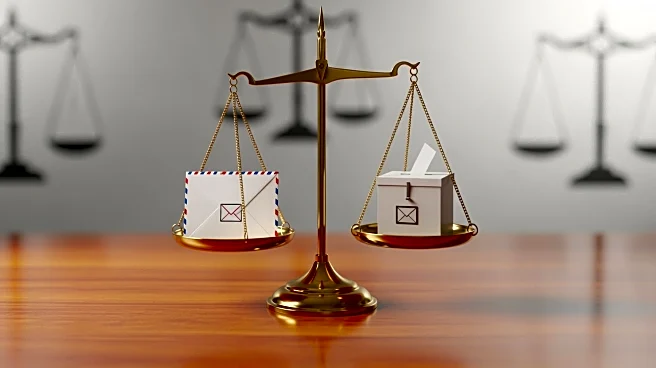What's Happening?
The Supreme Court has agreed to decide whether states can count mail-in ballots received after Election Day, taking up a Republican-led lawsuit that could impact election laws in over a dozen states. The case
challenges Mississippi's law, enacted during the Covid-19 pandemic, which allows ballots to be received up to five days late if postmarked by Election Day. The Republican National Committee argues this violates federal law, which they claim mandates ballots must be received by Election Day. The decision could affect states with similar laws and influence future elections.
Why It's Important?
The ruling could reshape mail-in voting procedures across the country, affecting voter access and the integrity of the electoral process. States with laws similar to Mississippi's may need to revise their procedures, impacting voters, especially overseas military personnel. The case highlights ongoing debates about election security and the balance between accessibility and integrity in voting. A ruling in favor of the RNC could lead to stricter deadlines for mail-in ballots, influencing future elections and possibly reducing the number of votes counted.
What's Next?
The Supreme Court's decision could prompt states to adjust their mail-in ballot procedures, impacting the 2026 midterm elections. Political leaders and election officials will need to prepare for potential changes in how ballots are processed and counted. The ruling may also lead to further legal challenges and legislative efforts to address mail-in voting rules, as stakeholders react to the court's interpretation of federal election law.
Beyond the Headlines
The case raises questions about federal versus state control over election processes, highlighting the tension between states' rights and the federal government's role in ensuring uniform election standards. It also reflects broader political dynamics, with mail-in voting becoming a contentious issue following President Trump's claims about election rigging. The ruling could influence public trust in the electoral system and shape future debates on voting rights and election reform.











